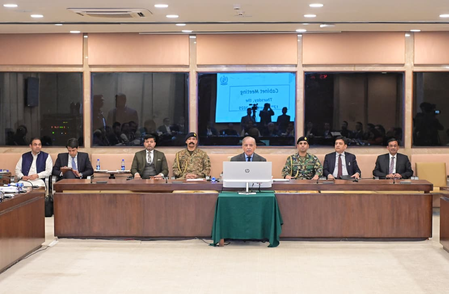Europe faces choice between silence and accountability on Pakistan’s digital repression: Report

Islamabad, Nov 14 (IANS) European states and institutions stand at a crossroads over whether to treat Pakistan’s clampdown on digital freedom as a bilateral stability problem — handled quietly and rewarded with trade, security cooperation and migration-management concessions — or as a human-rights crisis that requires visible diplomatic pressure, independent media support, protection for exiles and meaningful consequences for rights-abusing policies, a report detailed on Friday.
“When governments throttle the internet, ban critical channels and let critics vanish, the damage is both immediate and structural: lives are imperilled, civic life is narrowed and the civic record is rewritten. Pakistan’s recent turn toward an intensifying digital chokehold — in which whole swathes of the population are periodically cut off from mobile broadband, social platforms are blocked, independent channels are pushed offline and journalists are intimidated or abducted — should be a clarion call for principled diplomacy from European capitals,” a report in the UK-based media outlet Milli Chronicle detailed.
“Instead, what we have seen is a studious silence that reveals uncomfortable truths about how human-rights rhetoric is traded against geopolitical convenience. The pattern is now familiar. The Pakistani state has made internet restriction a recurrent instrument of political management: mobile internet is always suspended during protests, platforms including X are blocked, and legislative efforts are repeatedly sought to broaden surveillance and takedown powers,” it added.
According to the report, if European policy is to be more than merely transactional, it must stop dismissing Pakistan’s digital repression as an internal administrative problem and instead address it as a human rights emergency.
This requires support for civil society legal defence funds, relocation routes for threatened journalists, conditionality on technical assistance that could be misused for surveillance, and coordinated public exposure of abusive practices.
The report stressed that the trajectory is clear and if democracies fail to act now, they will lose their most credible leverage — the ability to insist that the technologies, laws and processes of modern governance uphold human rights.
“A final word: repression seldom announces its endpoint. Legal restrictions harden, media spaces shrink, the line between digital policy and political policing blurs. The abductions, the shutdowns and the censorship of constitutional debate are not isolated incidents,” it stated.
The report further added that these repressions are part of a coherent strategy that treats information as a security threat rather than a public good. It said that if European foreign policy values democracy beyond slogans and press freedom beyond press releases, it must stop accepting such practices as “acceptable collateral to geopolitical concerns”.
“If Europe remains silent, it is not only failing Pakistanis under threat; it is teaching other regimes that there is no cost to closing digital spaces and disappearing dissidents. And that lesson will be taught elsewhere, too,” the report noted.
–IANS
scor/as





